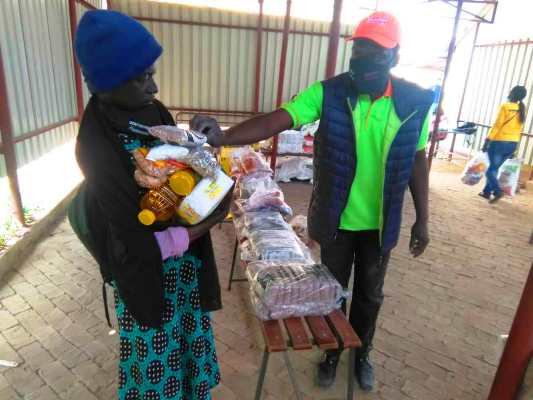
by dapp | Sep 7, 2020 | Blog, News
DAPP Zimbabwe has launched the Danish Emergency Relief Fund (DERF) supported Early Actions program. The Early Actions aim to contribute towards containing the spread of the COVID-19 epidemic and decrease morbidity and mortality among vulnerable people in Makoni District in Manicaland province in Zimbabwe. The project aims to reach 10 000 households at risk of contracting COVID-19 with correct facts about the epidemic and how they can protect themselves and each other .
Presenting the project at district sensitization meetings, Project Leader, Stailine Ruzvidzo said the main thrust of the project is to ensure that communities and people know how to prevent getting infected by COVID-19 and how not to spread the virus to others. This will be done through targeted information dissemination channels, outreach activities, screening and support for those affected. The intervention which is aligned with the Zimbabwe’s Humanitarian Response Plan (ZHRP) will work closely with the District Response Team and Ministry of Health and Child Care to identify those at risk and provide them with basic food assistance, COVID-19 screening as well as establish social support structures to stop the spread of COVID-19.
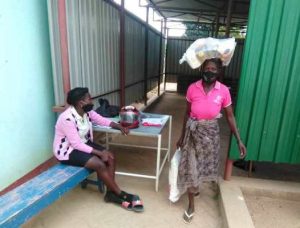
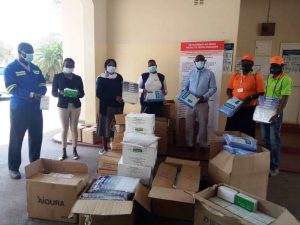
As part of measures to support vulnerable members of the community DAPP will establish water points to ensure that there is availability of clean water to maintain good hygiene. Community members will also receive skills training on how to establish and maintain vegetable gardens to ensure sustainability of food supplies. DAPP through this project will work closely with Rusape General Hospital to strengthen the established Isolation centre in the district, provide personal protective equipment for health care workers and donate a multi-purpose ambulance for patients and reaching hard to reach areas.
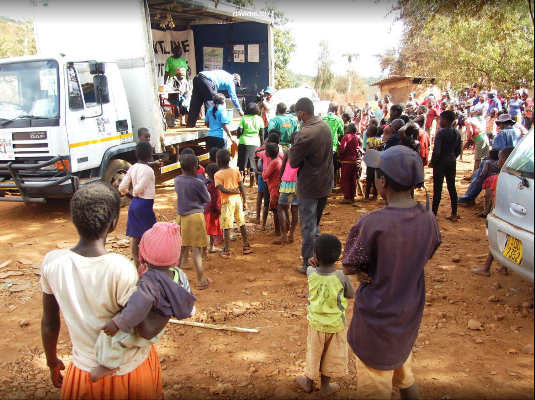
by dapp | Jul 27, 2020 | Blog, News
DAPP Zimbabwe in collaboration with the Ministry of Health and Child Care (Shamva Hospital) organized a COVID-19 awareness campaign in Shamva district targeting communities around Madziwa Rural, Cornerstore, Joking 8 and Wadzanai township. The campaign was conducted earlier this month
As the nation fights the COVID-19 pandemic DAPP Zimbabwe has taken public health and hygiene messages to the most vulnerable people using road shows. The campaign reached more than 5 000 people in semi-urban, mining areas and rural areas. 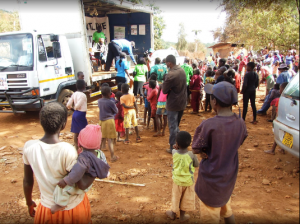
The initiative has enabled the dissemination of key messages on COVID-19 in one of the most effective and efficient ways particularly during the lock down period. There is good uptake of messages and information as the roadshow team moved through communities spreading messages using loud speakers.
The key messages emphasized COVID-19 transmission, prevention, hygiene, social distancing and other important health and well-being issues related to COVID-19.
The District Environmental Technician for Shamva District Mr Evidence Mufambi spoke highly on the collaboration between DAPP and the Ministry of Health and Child Care adding that it was critical for marginalized communities to have access to information on COVID-19 to stop its spread.
He added that proper hand-washing and correct use of face mask demonstrations were going a long way in ensuring that communities are protected.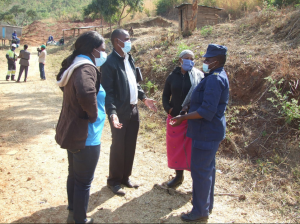 The campaign demonstrated the need for continuous organizing and supporting the community with relevant information about COVID-19.
The campaign demonstrated the need for continuous organizing and supporting the community with relevant information about COVID-19.
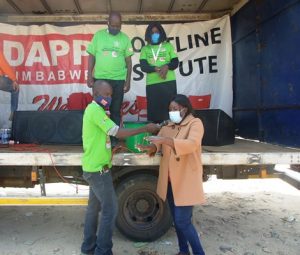
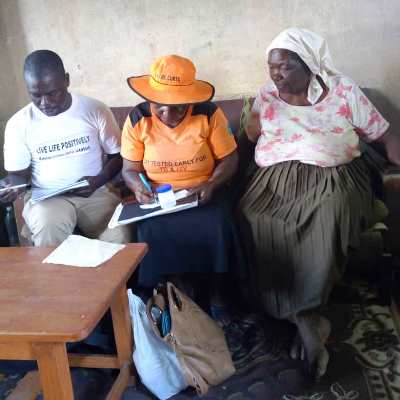
by dapp | Jul 14, 2020 | Blog, News
Development Aid from People to People (DAPP Zimbabwe) was the first member of Humana People to People to pioneer HIV/AIDS prevention work using the Total Control of the Epidemic (TCE) programme concept in 2000. Since then, TCE has reached nearly 1 million people throughout Zimbabwe, equipping them with the capacity to take control of their lives against the HIV/AIDS epidemic.
DAPP Zimbabwe recognises that people are responsible for their own health, but must be empowered to make the right decisions. People’s active participation in protecting their health can be done through community-based public health campaigns that reach out to individuals, groups and target populations.
The TCE Zimbabwe programme assisted nearly 700 000 individuals in developing a personal HIV risk reduction plan from 2000 – 2012. The model has enabled pregnant women to know their HIV status, get tested and receive counseling and undergo treatment. More than 50 000 pregnant women have received HIV support services to prevent mother-to-child transmission.
TCE has, over time, been funded by various partners; however, the first grant in Zimbabwe from USAID made it possible to provide evidence of a successful HIV model, leading to the interest of different national governments, and ultimately, expansion into 12 countries reaching 20 million people in Africa, India and China by 2017.
Today, DAPP Zimbabwe runs an HIV/AIDS programme, HOPE Bindura, reaching vulnerable populations with HIV prevention, treatment, and care services along the continuum of care. HOPE Bindura mobilises young mothers to attend and participate in pre-natal and ante-natal care sessions. Additionally, the project works closely with local clinics and hospitals; it coordinates with the Ministry of Health and Child Welfare to provide HIV services.
As of 2019, HOPE Bindura has engaged over 42 000 people in its community outreach work, with more than 25 000 referred for HIV treatment at various local health centers. 830 People Living with HIV were organised in community-based support groups to promote treatment adherence, receiving training in Internal Servings and Lending, and small livestock husbandry to improve their nutrition.

by dapp | Jun 15, 2020 | Blog, News
Gutu district, located in Masvingo district is predominantly located in semi-arid region which experiences erratic and uneven rainfall patterns. Coupled with Cylone Idai that destroyed people’s livelihoods, infrastructure, fields, livestock, food reserves many families were left in need of humanitarian assistance.
In an effort to increase resilience among populations affected by macroeconomic difficulties, Cyclone Idai and severe drought DAPP through funding from the Danish Emergency Relief Fund is implementing the Early Action program targeting 500 vulnerable and food-insecure households in wards 8 and 9 of Gutu District, Masvingo .
Project beneficiaries who include female headed households, people living with disability, elderly, pregnant and lactating women and the chronically ill received small livestock (chickens and goats ) as part of assets restoration. This will go a long way in improving food and nutritional security and poverty alleviation. Programs Coodinator Petros Muzuva says “Small livestock play an important role in rebuilding long term sources of incomes for families. The boschveld chickens and goats which are drought-tolerant breeds that are best suited for this region are fast multiplying.” He added that “Farmers will be supported to better look after the animals through provision of diseases prevention drugs, capacity building in improved animal husbandry practices, livestock breeding and management”
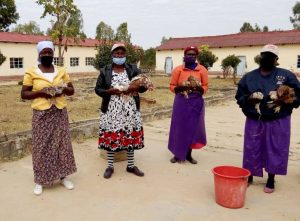

The early action approaches are also aiming to improve access to sufficient safe and clean water sources for people and their livestock through borehole rehabilitation and construction of water pens for livestock. This will ensure curbing of the spread of water –borne, bacterial and parasitic infections among people and their animals.
The project will run from March 2020 to August 2020

by dapp | May 21, 2020 | Blog, News
As the world continues the fight against COVID -19, the gains made in fighting HIV/AIDS must be maintained. Following the extension of the nationwide lockdown in Zimbabwe, HOPE Bindura’s voluntary counseling and testing (VCT) centre resumed offering HIV counseling and testing to the Bindura community in May 2020.
HOPE Project Leader Rebecca Njopera says providing HIV health services such as HIV prevention, testing and treatment remains a priority during the level 2 lockdown period in order to reach the 95-95-95 targets. “As we resume the services, we continue to adhere to laid down precautionary measures of social distancing, and hand washingt among others. The nurse and staff manning the testing centre worked together to ensure that both clients and the staff are safe.
New measures implemented to protect clients and staff:
- Both clients and staff are screened for COVID-19 symptoms before entering the clinic
- Both clients and staff wear face masks in the centre
- Water and Soap and hand sanitizer are provided for both staff and clients
- Staff advises clients on safe physical distancing.





by dapp | Apr 26, 2020 | Blog, News
World Malaria Day, which takes place on 25 April each year, is an internationally recognized day, highlighting the global efforts to control malaria and celebrating the gains that have been made. The global theme for World Malaria Day, ‘Zero Malaria Starts with Me’, emphasizes everyone’s power and responsibility – no matter where they live – to ensure no one dies from a mosquito bite. DAPP Zimbabwe remains committed to eliminate malaria in Zimbabwe. We reflect on the recently ended Global Funded E8 project on Malaria under the ADPP Mozambique consortium.
The project was aimed to support national cross- border and district community based malaria elimination programs to address the problem of cross-border parasite transportation between the high and low endemic countries through targeting the migrants and mobile populations and the local malaria transmission in underserved hard to reach communities in border districts. The project was premised on four strategic approaches namely
- Community mobilization and empowerment with advocacy, Information Education and Communication (IEC) for demand creation and utilization
- Early diagnosis and testing with Rapid Test Kits and quality control with Microscopy
- Treatment, referral, follow up and radical cure with combination malaria drugs
- Surveillance and tracking of cases with monitoring and evaluation
The project main results were:
- Construction of 5 Border Health Posts to serve the population around border areas and Migrant and Mobile Populations in Beitbridge, Rushinga, Mutasa, Mudzi and Chiredzi.
- Health Posts successfully offered Malaria treatment including some Primary Health Care services as agreed by the District Health Executives (DHEs).
- Enhanced Malaria Participatory approaches with campaigns and cooperation with all locally recognized structures.
- EHTs managed to carry out Case investigations and identification of breeding sites in pursuant to control of malaria.
- Registered General Nurses (RGNs), Environmental Health Technicians (EHTs) and the Project staff combined in advancing Social behaviour change communication within the far to reach communities on Malaria awareness.
- Strengthening communities on local collaboration through Community Advocacy meetings which engaged local leadership and cross border communities.
- Enhanced community testing and treatment of malaria by VHWs.
- Mobilization for Indoor Residual Spraying (IRS) Programs at Household level & Feedback meetings with Village Health Workers.
- Each Health Post managed to form a Health Centre Committee to spearhead local development of the health post.

















